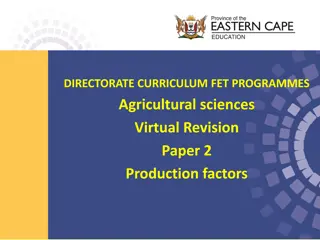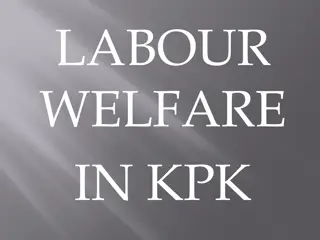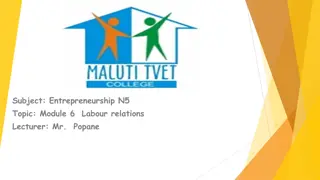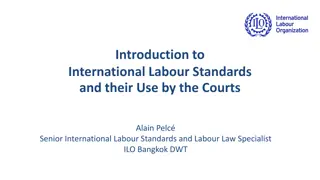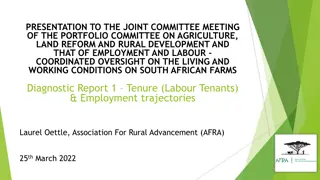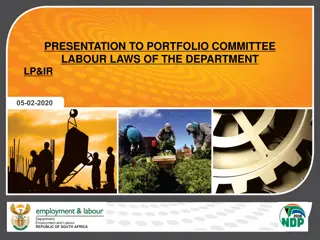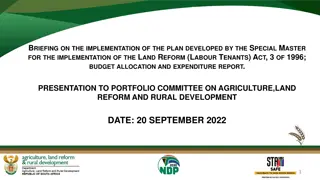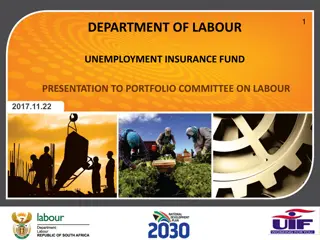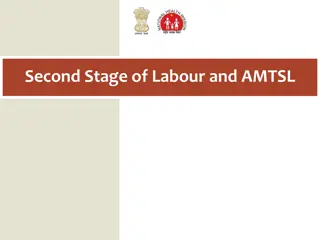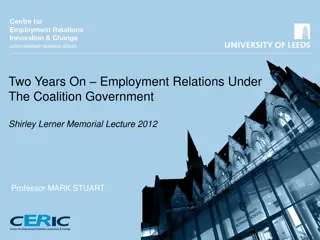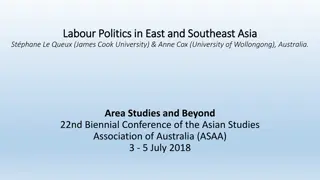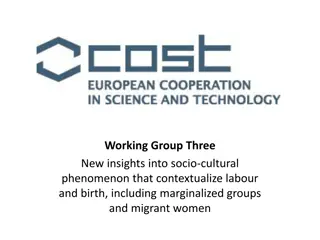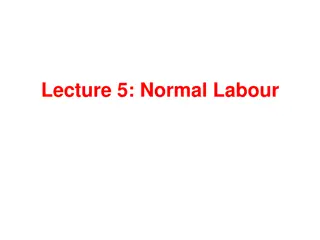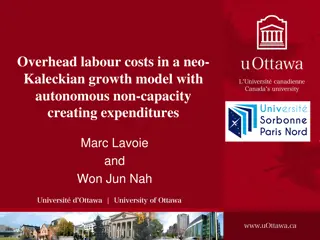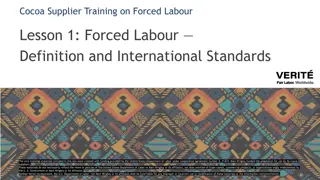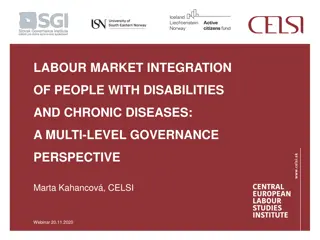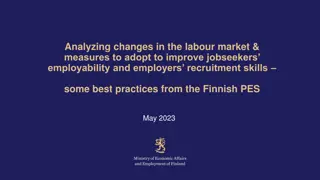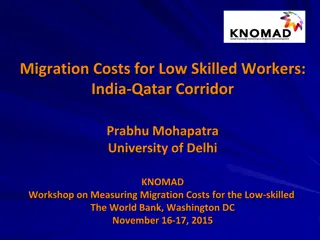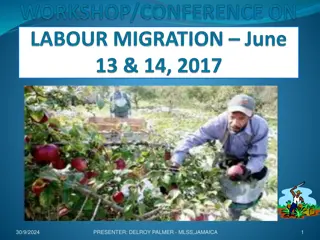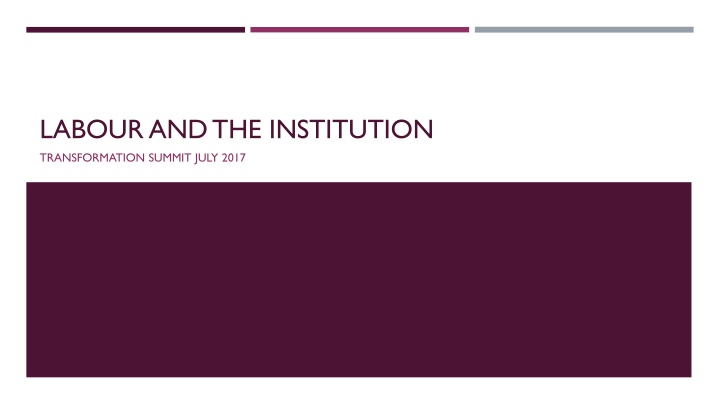
Transformation Summit Insights: Labour and Institution Change
Gain valuable insights from the Labour and Institution Transformation Summit July 2017. Delve into stakeholder perspectives, key questions, general findings, and desiderata for transforming labour practices in institutions towards equality, equity, and sustainability. Explore the vision for a transformed university culture that fosters diversity, inclusivity, and worker-friendly policies.
Uploaded on | 1 Views
Download Presentation

Please find below an Image/Link to download the presentation.
The content on the website is provided AS IS for your information and personal use only. It may not be sold, licensed, or shared on other websites without obtaining consent from the author. If you encounter any issues during the download, it is possible that the publisher has removed the file from their server.
You are allowed to download the files provided on this website for personal or commercial use, subject to the condition that they are used lawfully. All files are the property of their respective owners.
The content on the website is provided AS IS for your information and personal use only. It may not be sold, licensed, or shared on other websites without obtaining consent from the author.
E N D
Presentation Transcript
LABOURAND THE INSTITUTION TRANSFORMATION SUMMIT JULY 2017
THE NEED FOR DEEP ENGAGEMENT BY DELEGATES The map is not the territory: this is not a comprehensive retelling of the report or deliberations Please read the report. It contains details and nuance and reflect the voices of the participants Many issues arising in the context of labour are complex, subject to legislation, etc. Solutions need to be informed.
STAKEHOLDERS NEHAWU NTEU HOD forum HR Senior Management Middle Management Academics, Support staff, international staff
QUESTIONS PUT TO STAKEHOLDERS How do you view labour in a transformed institution? What is your vision of labour in a transformed institution? What do you think is preventing transformation at the institution? What can be done to ensure progressive realization of a transformed institution Input included: written submissions, focus groups , and existing reports and surveys
GENERAL FINDINGS General satisfaction with infrastructure and physical environment Dissatisfaction with: Pace of transformation Equity Working conditions Rewards and recognition Personal and career development Management Practices The groups engaged were not positive about the culture of the university Issues of race, culture and language were prominent and these are affected by grade level
DESIDERATA FOR TRANSFORMATION OF LABOUR PRACTICES Values associated with a transformed university should be: equality, equity, kindness, diversity, inclusivity, dignity, trust A transformed university is about remaining viable and relevant Espouse as a core value that workers are essential long-term stakeholders Be committed to ongoing equity Be committed to transparency in the interests of equity Be committed to sustainable management practices Agressively develop and maintain worker friendly policies Agressively develop and maintain an eqitable remuneration policy informing remuneration decisions Use a worker friendly business model that allows workers to develop their careers
COMMON CONCERNS AND THEMES THAT EMERGED Frustration about relative lack of participation and engagement from some sectors Frustration that previous transformation gatherings appeared to have little impact; do not result in concrete plans, etc. Staff development: training opportunities, succession planning, mentoring of junior staff, spreading the knowledge, lack of promotions for non-academic staff Job profiling and reward practices: Supervisor/supervisee relationships: more equitable work allocation; more consultative approaches
COMMON CONCERNS AND THEMES THAT EMERGED Consistent application of policies: often good practices seem to be the result of efforts of an individual rather than systemic in nature Slow or inadequate responses from HR and the need for better HR support Divisive notions around labour e.g. that workers are split into artificial classes: academic vs non- academic; white collar vs blue collar Many other particular points were raised by different submissions which were not necessarily picked up in other submissions. This does not mean those points are not relevant: they are too various to mention in a short presentation and I run the risk of privileging one voice overs. PLEASE READ THE REPORT.

